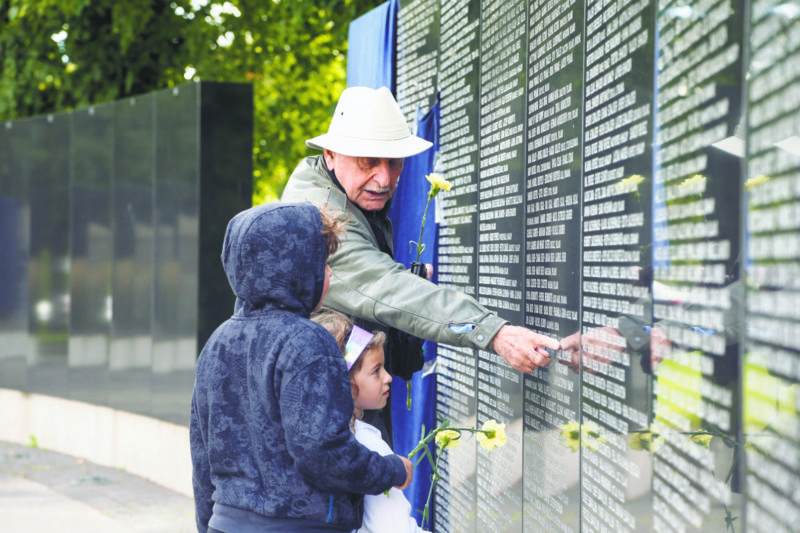A recent poll found that 41 per cent of millennials in the United States believe that no more than two million Jews perished in the Holocaust, while 22 per cent aren’t sure what the Holocaust was. It also found that two-thirds of respondents couldn’t identify what Auschwitz is. Jews everywhere are rightly alarmed.
This widespread ignorance of the Holocaust is a tragic failure of the American education system. I imagine the Canadian numbers are better, but still disheartening. Nevertheless, Jewish communities in the Diaspora should be wary of drawing the wrong conclusion from this survey. Clearly, non-Jews of all ages need more Holocaust education. Jewish youths, however, need less.
As historian Tony Judt wrote, “many American Jews are sadly ignorant of their religion, culture, traditional languages or history. But they do know about Auschwitz, and that suffices.” Jewish culture in the Diaspora remains saturated with Holocaust education and commemoration. This is bad for the Jews.
The Holocaust should be an important, but small, part of Jewish education. A narrow focus on the Shoah leaves too many young Jews with distorted views of Judaism and flimsy Jewish identities that are unlikely to carry through to the next generation.
READ: WHY WE NEED TO STOP ‘RECREATING’ THE HOLOCAUST
Many Jews from across the political spectrum agree. The late Rabbi Jacob Neusner, one of the foremost scholars of Jewish texts and a steadfast conservative, felt that the overwhelming emphasis on the Holocaust was detrimental to the psychology of the Jewish people. McGill University historian and fellow CJN columnist Gil Troy, who’s a proud Zionist and political centrist, sees “too much money invested in how we died, not enriching how we live.” Journalist Peter Beinart, a stalwart of the Zionist left, criticizes the Shoah-centric cult of “perpetual victimhood” as harmful to Jewish continuity in Israel and the Diaspora.
In the Israeli-Palestinian context, there are practical reasons to resist this attitude. The cult of victimhood that Jews often succumb to endangers the prospects for peace in the Middle East. The dictum “Never Again” is valuable if it compels Jews to fight against modern forms of anti-Semitism. But that vigilance does not require that we put the tragedy of the Shoah at the heart of our Jewish identity. If we see ourselves as perpetual victims, we become blind to our own power, and to situations in which we victimize others.
Outside of Israel, where assimilation is a constant threat, Shoah-centred Judaism is all-encompassing, but profoundly misguided. Holocaust education is no cure for Jewish illiteracy – the greatest challenge that the Diaspora faces. Hebrew language skills, mastery of Jewish texts and broad understanding of Jewish history, religion and literature are more important than being hyper-aware of the Holocaust.
For me, this issue is personal and professional. A grandchild of four survivors, I teach Jewish history for a living. Most of my students are not Jewish. The Holocaust is hugely important, taking up two full lessons in my survey course. But I have to cover everything from Adam to Saddam in two semesters and I try to communicate to my students that the Holocaust is not the entirety of the Jewish experience. Like the great historian Salo Baron, I resist the “lachrymose (tear-filled) conception of Jewish history.” I would resist it even more if most of my students were Jewish.
We are constantly reminded to “Never Forget,” which has become the 11th commandment of modern Jewish life. We will not forget, but we can remember without commemorating the Holocaust at the expense of the other, more joyful or celebratory events in Jewish history.
It’s been said that there are two kinds of Jews: Tisha b’Av Jews and Simchat Torah Jews. The former love a good lament, are moved by mourning and enjoy singing sad songs in the dark. The latter would rather dance the hora with the Torah. There’s a time for tears, but I prefer dancing. Let’s remember the past, the good and the bad, learn from it and look forward. Am Yisrael Chai
